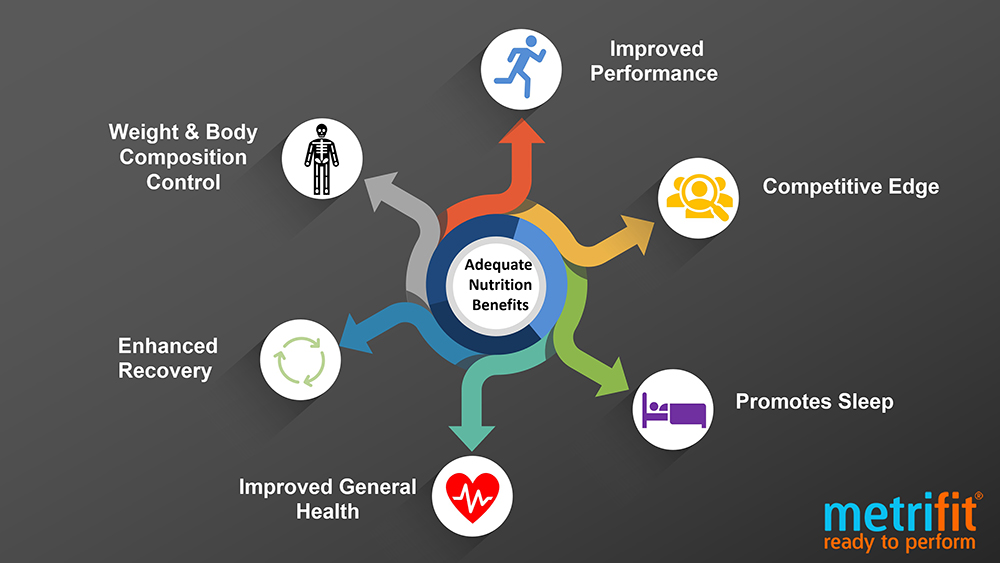Being an athlete is an incredible journey. It’s a continuous pursuit of pushing your physical and mental boundaries, striving for excellence, and achieving new milestones. But along with the passion and dedication that fuels athletes, proper nutrition plays a crucial role in optimizing performance and ensuring a speedy recovery. As an athlete myself, I have experienced firsthand the powerful impact that proper nutrition can have on athletic performance. In this blog post, I will delve into the importance of nutrition for athletes, and offer some practical tips to help you fuel your performance and enhance your recovery process.
When it comes to sports nutrition, the first key consideration is meeting your energy needs. Athletes burn significantly more calories compared to sedentary individuals due to the high-intensity nature of their training sessions. This means that you need to fuel your body with an adequate amount of carbohydrates, which are the primary source of energy for your muscles. Complex carbohydrates, such as whole grains, fruits, and vegetables, are the preferred choice as they provide a slow release of energy and also contain essential vitamins and minerals.
In addition to carbohydrates, incorporating lean proteins into your diet is essential for muscle repair and growth. Protein-rich foods like lean meats, poultry, fish, eggs, and plant-based sources such as legumes, tofu, and tempeh should be included in your meals. Aim to consume about 1.2-2 grams of protein per kilogram of body weight, depending on the intensity and frequency of your training.
Fat is another important macronutrient for athletes, providing a concentrated source of energy and aiding in the absorption of fat-soluble vitamins. Opt for healthy fats, such as avocado, nuts, seeds, and olive oil, which offer a host of additional health benefits.
Hydration is yet another crucial aspect of sports nutrition. Water is involved in virtually every bodily function, and staying properly hydrated is vital for optimizing athletic performance. The American College of Sports Medicine recommends consuming about 500 ml (16 ounces) of water 2 hours before exercise, and another 250 ml (8 ounces) 10-20 minutes before starting. During exercise, aim to drink about 250 ml (8 ounces) every 15 minutes. After exercise, replenish your fluids by drinking about 480-720 ml (16-24 ounces) for every pound of body weight lost during exercise. Remember, thirst is not always an accurate indicator of hydration, so make a conscious effort to stay adequately hydrated throughout the day.
Apart from macronutrients, athletes need to pay attention to their micronutrient intake as well. Vitamins and minerals play a crucial role in supporting various physiological processes within the body. For example, iron is essential for oxygen transport, calcium is important for bone health, and zinc is necessary for immune function. Incorporate a variety of fruits, vegetables, whole grains, and dairy products into your diet to ensure an adequate intake of these vital nutrients.
Timing your meals and snacks strategically can also optimize your athletic performance. Consuming a balanced meal 2-3 hours before exercise can help provide a steady source of energy during your training sessions. This meal should consist primarily of carbohydrates, with small amounts of protein and fat. If you train early in the morning or don’t have enough time for a full meal, a light snack such as a banana or a piece of toast with peanut butter can still provide you with the necessary fuel.
Post-workout nutrition is equally important as it aids in muscle recovery and replenishing energy stores. Aim to consume a snack or meal within 30-60 minutes after exercise, consisting of both carbohydrates and protein. This can be a protein shake, a turkey sandwich on whole-grain bread, or Greek yogurt with fruit and granola. Including some form of protein in your post-workout meal helps kickstart the muscle repair process and replenishes glycogen stores more efficiently.
Supplementation can be a controversial topic, but it can also have its place in the world of sports nutrition. Consult with a registered dietitian or sports nutritionist to determine if you have any specific nutrient deficiencies or if you would benefit from targeted supplementation. Keep in mind that supplements should never replace a well-balanced diet, as whole foods will always provide a wider range of beneficial nutrients.
In conclusion, nutrition plays a vital role in an athlete’s overall performance and recovery. By fueling your body with the right balance of macronutrients, hydrating adequately, and paying attention to your micronutrient intake, you can optimize your athletic performance and ensure a speedy recovery. Remember, proper nutrition is a journey, so stay curious, keep experimenting with different foods, and listen to your body’s unique needs. Here’s to fueling your inner champion!
